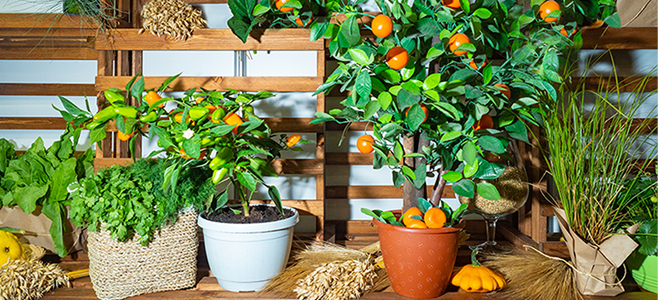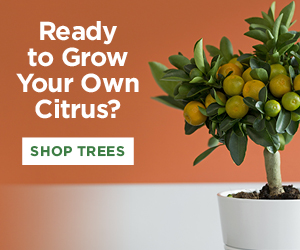
Thanks to a lack of harmful pesticides and a purported improvement in overall quality, many people want to grow citrus trees that are organic. However, it’s important to fully understand what organic means before you start growing. Organic is not about the kind of citrus fruit that you grow, but rather how you grow it.
What is Organic Citrus?
Organic ultimately means natural. It means using only natural fertilizers and pest control methods. Some people opt for using chemicals to help give their plants an advantage when growing or keeping rid of parasites. However, others would rather go a more natural or organic route when growing their citrus.
Keeping everything to an organic standard with citrus trees can be hard, though. This is because using only natural methods makes some processes for fertilizing and pest control harder or more complicated.
How is Organic Citrus Different?
Since the methods used for growing it are a little bit different, you will find that an organic grove of citrus trees and their fruit will look a little different from large commercial farms that employ chemicals in growing their fruit.
In a commercial grove, you may notice that everything looks cookie cutter and uniform. This is not really how a grove of organically grown citrus trees will look. In fact, you might find an organic grove of citrus trees to look almost chaotic or like they just grew there naturally. This does not, however, mean they are not maintained.
In fact, an organic grove may take more time and effort to maintain in many ways than a commercial one does. For example, one of the best pest and parasite control methods for the organic grower is the natural underbrush of the trees. These ground covers and weeds actually work to attract beneficial insects that are the natural predators of insects that can damage the trees.
Another reason for keeping all of this underbrush is because it provides a type of natural mulch for the roots of the trees, helping to keep the correct levels of moisture and insulating the roots against any small cold snap that might cause damage to the trees.
Even the fertilizer used in an organic grove of citrus trees is going to look a little bit different. Again, you won’t see the same chemicals that are mixed into commercial soils here. When working with organic citrus trees, fertilizers are usually combinations of potting solid, hay, compost, and other types of natural materials.
Organic Citrus Fruit
Organic citrus fruit is grown using all-natural methods; many people swear by it and are willing to pay top dollar too. A lot of people feel that organic fruit is not only safer to consume but that it tastes better too. However, commercial citrus trees seem to produce consistent and visually perfect fruit.
This is because preservatives chemically protect commercially grown citrus and in some cases, it is even coated with a special wax coating to keep it from being potentially damaged by changes in weather or parasites.
Even though citrus fruit grown without the use of chemicals and harmful pesticides is far better for you and usually tastes better, commercial growers make more money from fruit that has a guaranteed harvest and visual perfection. Unfortunately, most people shop and eat with their eyes first without digging deeper into the actual health benefits and taste of the fruit they buy.
Does Citrus Fruit Need to Be Organic?
Citrus fruit does not have to be organic. Whether or not you choose to grow organic citrus trees or use artificial chemical-based pesticides and fertilizers is up to you. However, if you want to harvest citrus fruit without these harmful chemicals, organic home gardening is not wildly difficult, and on a small scale, isn’t even that much more expensive.
When you grow organic citrus, the main thing is you are guaranteed an all-natural product that will likely give you a more authentic flavor when you eat it. Also, if you’re concerned about the chemicals that food is being grown with these days, organic citrus trees will be a much more appealing prospect for you.
What Citrus is Healthiest?
If you are concerned with adding the healthiest fruit to your diet, grapefruit is the healthiest of all the citrus fruits. Grapefruit has fiber, potassium, beta carotene, and vitamin C, making it one of the healthiest fruit choices available.
However, grapefruit is just one option. Oranges and lemons also come packed with vitamins and have tons of benefits for your body and overall health as well. In addition, you might find these fruits more to your liking because they have a wide variety of uses.
In fact, there aren’t too many dishes you can’t enhance with a little lemon juice. Lemon juice can even help to keep other fruits fresh in a salad or dish.
Should You Eat Citrus Every Day?
Eating citrus daily can be a great way to keep your diet healthy. Citrus fruits offer many vitamins and minerals, not to mention they taste really good.
One of the best things about adding citrus to your diet is that there are so many options within the citrus category that you can eat citrus every day and not feel like you are eating the same thing repeatedly.
The best part of adding citrus to your diet is that you can grow it yourself and be sure of what you are eating and how it was grown. Check out Citrus.com to see what kind of amazing citrus tree might be right for you and your home!

